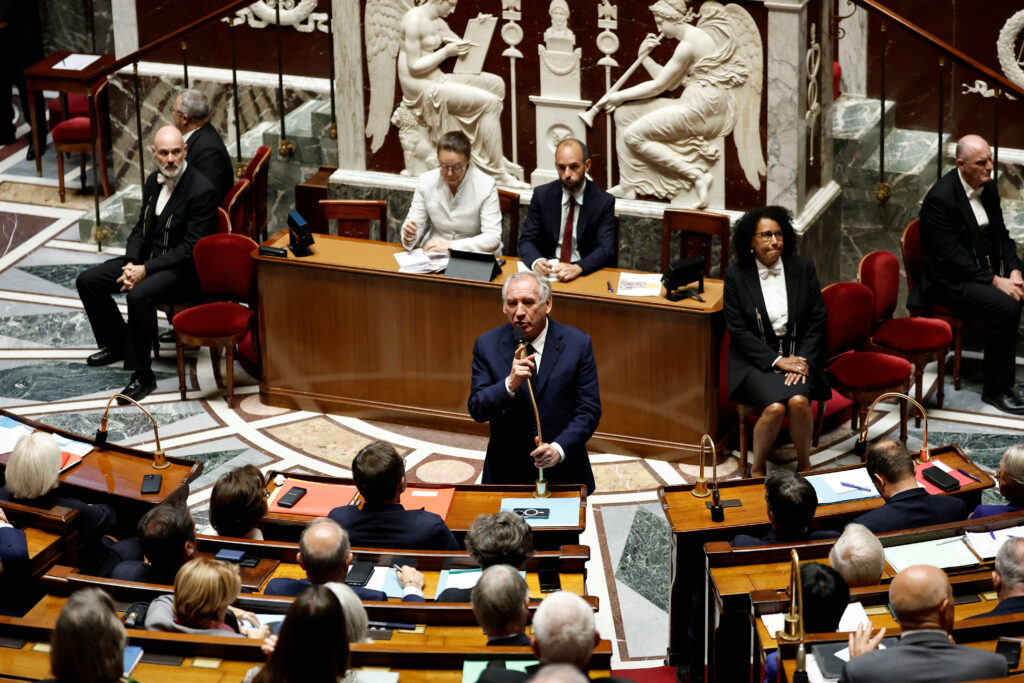The political landscape of France was shaken on September 8, 2025, when Prime Minister François Bayrou’s government collapsed following a resounding no-confidence vote in the National Assembly. The defeat—by a wide margin of 364 to 194—marked another setback for President Emmanuel Macron, who now faces the daunting task of appointing a new prime minister for the third time in just over a year.
This sudden collapse has not only created a domestic political crisis but also raised serious questions about France’s economic stability and its role in the wider European Union.

Introduction
The French government collapse on September 8, 2025, has sent shockwaves across Europe. Prime Minister François Bayrou was ousted after losing a no-confidence vote in the National Assembly by a huge margin. This dramatic event not only exposes the deep divisions in French politics but also puts President Emmanuel Macron under pressure as he faces the challenge of appointing another prime minister.
This blog will break down the reasons behind the collapse, its political consequences, and how it may impact France’s economic and European future.
Why Did the French Government Collapse?
The collapse was triggered by Bayrou’s austerity-focused budget plan, which aimed to reduce France’s debt crisis. Key measures included:
- Freezing welfare benefits and pensions
- Cutting public spending on services
- Removing two national holidays to boost productivity
While these reforms were designed to address France’s growing public debt, they faced massive backlash. Opposition parties from both the far right and far left united against the proposal, leading to the government’s downfall.

Macron’s Political Crisis
For President Emmanuel Macron, the collapse creates a serious political dilemma:
- No majority in parliament: After last year’s snap elections, no party holds a clear majority, making governance unstable.
- Third prime minister in a year: Macron now faces the tough task of appointing yet another leader.
- Opposition gaining ground: Marine Le Pen’s National Rally and the left-wing alliance are demanding snap elections.
This highlights the weakness of Macron’s centrist strategy and the rising strength of opposition forces in France.
Economic Impact of the Collapse
The government’s fall has worsened France’s economic uncertainty:
- Bond yields surged as investor confidence weakened.
- Public debt is over 114% of GDP, raising concerns about fiscal stability.
- Markets fear instability, making future investment in France riskier.
Without a stable government, France may struggle to implement necessary economic reforms, potentially damaging its credibility in global markets.
What This Means for France’s Future
- Governance Challenges
France’s divided parliament makes passing tough reforms nearly impossible. Macron may need to form wider coalitions or compromise on his policies. - Social Unrest
The austerity measures were highly unpopular. Any new government will need to balance debt reduction with protecting workers, welfare, and pensions. - European Impact
France is a leading power in the European Union. Prolonged instability could weaken its role in EU decision-making, especially in climate policy, defense, and economic reforms.
Conclusion
The collapse of François Bayrou’s government is more than a temporary setback—it signals a political and economic crisis in France. With soaring debt, rising opposition, and a fragile parliament, Macron faces his toughest challenge yet.
What happens next will decide not only the future of French politics but also the stability of the European Union. As investors, citizens, and global leaders watch closely, one thing is clear: France is entering a decisive moment in its modern history.